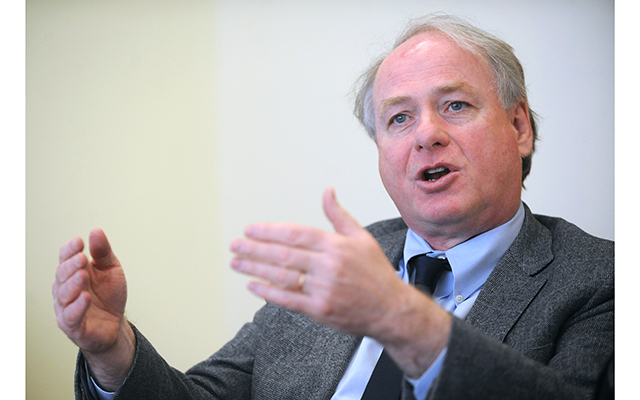Maine’s universities are trying to figure out how to pump out more graduates — nurses, engineers, computer scientists and more — that the state will need desperately in coming years.
Maine is predicting a dramatic shortage of skilled workers in the next decade, including a projected shortfall of 3,200 nurses by 2025, according to a recent study.
During a two-day meeting in Farmington, the University of Maine System Board of Trustees grappled with the question of how the state’s universities could best help fill looming vacancies and bring people back into the working world.
“We are the critical cog in this wheel, but we can’t do it alone,” University of Maine System Chancellor James Page told trustees Monday. “I don’t see a path forward for meeting these needs that does not involve public education in an integral way.”
The state’s universities would have to collaborate closely with community colleges, hospitals, lawmakers, nongovernmental organizations, employers and others to target these employment gaps and bring more people into Maine’s workforce.
Economic growth goes hand-in-hand with growth in the job market, according to John Dorrer, a consultant and former acting commissioner for the Center for Workforce Research and Information.
In the wake of the 2008 recession, about 30,000 Mainers were dropped from the workforce, largely in manufacturing, construction and retail fields. While those numbers have shown signs of recovery, and economic conditions have made a turn for the better, many of the high-wage, high-skill jobs have been exported to other states. Dorrer said those jobs likely aren’t coming back, and faced with Maine’s demographics challenges — deaths outpacing births, and out migration across much of the state — sustained growth will be an uphill climb.
If jobs continue to edge out of Maine and labor force growth doesn’t pick up, “we will, at some point, see Maine’s [Gross Domestic Product] growth reverse itself,” Dorrer told the trustees.
“Many of those people who were thrown out of that economy [after 2008] haven’t come back in,” Dorrer said, adding that the state’s universities and community colleges will need to play an crucial role in bringing some of those former workers back into the loop.
But sending people out the door with degrees won’t be enough, Dorrer cautioned.
The County is pleased to feature content from our sister company, Bangor Daily News. To read the rest of “With Maine worker shortages looming, universities seek ways to pump out more grads,” an article by contributing Bangor Daily News staff writer Nick McCrea, please follow this link to the BDN online.








